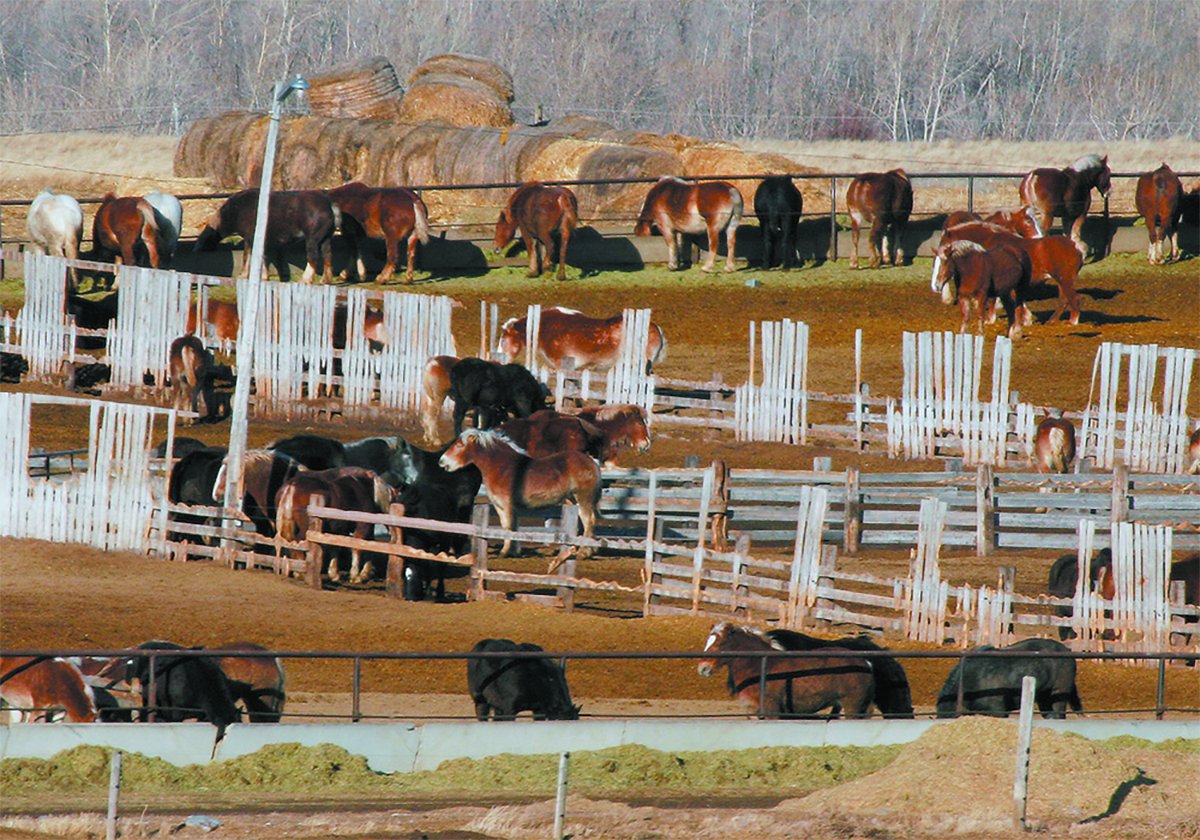LETHBRIDGE, Alta. – Cattle and sheep fed vegetable oil in rations have better growth rates and can provide meat with human health benefits.
“The use of vegetable oil in beef cattle is limited, but the potential human health benefits of increasing the content of fatty acids, such as conjugated linoleic acid, in meat has sparked new interest in the idea,” said Priya Mir, animal nutritionist at the Lethbridge Research Centre for Agriculture Canada. She presented her research at the recent national beef science seminar held in Lethbridge.
Read Also

Canada’s slaughter horse industry lacks transparency
The lack of clear reporting and public access to data keeps the industry largely hidden, leaving questions about humane treatment and traceability unanswered.
Conjugated linoleic acid has been associated with reduced cancer risks in humans.
Feedlots commonly add canola oil to feeder rations to keep down dust but recent research has shown adding oilseeds or oil to the diet has a positive effect on growth and other physiological improvements in beef cattle.
Average daily gains improved whether the animals received seeds such as flax or sunflowers or liquid oil in supplements.
One study involving sheep added six percent sunflower oil to their diets. The added oil appeared to increase rumen efficiency and protein uptake.
It was also found that food being digested in the intestine was less viscous, which led to better digestive activity and better absorption of nutrients. Protein degraded better and led to better weight gains.
When sunflower seeds were added to feedlot cattle diets, the animals had a better average daily gains with no effect on their feed intake. As well, slaughter weights were higher.
However, the additional oil also increased back fat levels, likely because of the excess energy provided by the oil.
Animals fed corn oil seemed to shed fewer bacteria and had lower methane emissions.
“An estimated 15 percent reduction in methane emissions from beef cattle have been attributed to dietary oil,” she said.

















